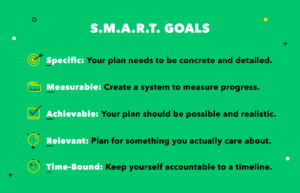by Jordan Stone
Controlling impulse spending can be a challenge, but with mindful awareness and a few strategies, it is possible to develop better habits and gain control over your finances. Here are a few paragraphs outlining some effective ways to manage impulse spending:
1. Understand Your Triggers
The first step in controlling impulse spending is to identify the situations or emotions that often lead to impulsive purchases. It could be stress, boredom, or even a particular store or advertisement that tempts you. By recognizing these triggers, you can become more aware of your impulses and take proactive steps to address them.
2. Create a Budget
Developing a realistic budget is crucial in managing your finances. Allocate specific amounts for different categories of expenses, including discretionary spending. This will give you a clear picture of how much you can afford to spend on non-essential items. When tempted to make an impulse purchase, refer to your budget to remind yourself of your financial goals and priorities.
3. Practice Delayed Gratification
Instead of giving in to immediate desires, practice delaying gratification. When you come across something you want to buy on impulse, give yourself a waiting period, such as 24 hours or a week, before making the purchase. Often, you’ll find that the initial desire fades, and you realize that you don’t actually need or want the item as much as you thought.
4. Set Financial Goals


Having clear financial goals can motivate you to curb impulse spending. Whether you’re saving for a vacation, a down payment on a house, or paying off debt, remind yourself of these goals whenever you’re tempted to make an impulsive purchase. Consider the long-term benefits of saving and investing your money wisely instead of succumbing to immediate gratification.
5. Practice Mindful Spending
Before making any purchase, ask yourself if it aligns with your values and priorities. Consider the utility and value the item will bring to your life. Will it genuinely enhance your well-being or bring you long-term satisfaction? By practicing mindful spending, you can make more intentional choices and reduce impulsive purchases driven by fleeting desires.
6. Avoid Impulsive Environments
Minimize exposure to environments that trigger impulsive spending. Unsubscribe from retailer newsletters, avoid window shopping, and limit visits to shopping malls or online stores when you’re feeling vulnerable. Surround yourself with supportive friends and family members who encourage responsible spending habits and understand your financial goals. Make sure to put a reminder of your financial goals INSIDE your wallet, to remind yourself to stay true to those goals.
Controlling impulse spending requires discipline and self-awareness. By understanding your triggers, setting goals, and adopting mindful spending habits, you can regain control over your financial decisions and build a healthier relationship with money. Remember that it’s a process, and it’s okay to make occasional mistakes. Stay committed to your financial goals and celebrate small victories along the way.
S.M.A.R.T. Goals Chart Resource:
Share this article



